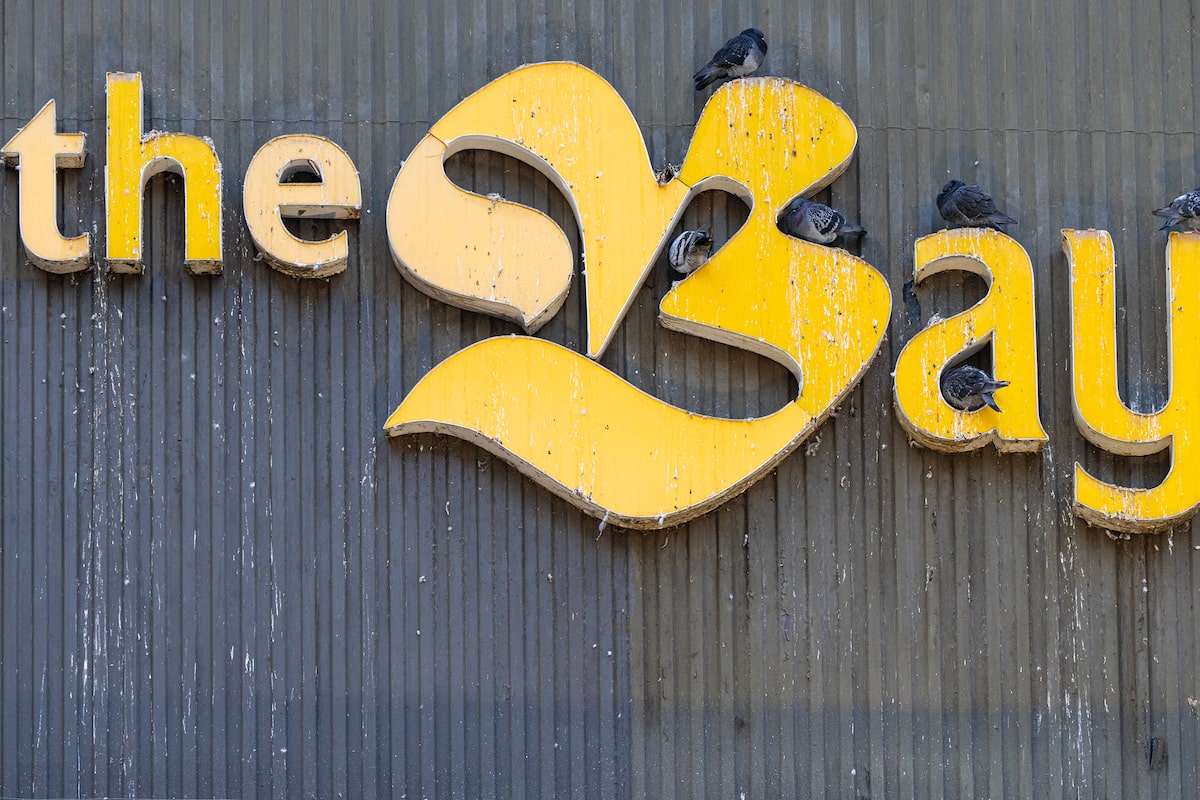The former Hudson’s Bay department store location in downtown Montreal on March 17.Christinne Muschi/The Canadian Press
The leases for 25 former Hudson’s Bay stores – which were the subject of a months-long legal battle between a B.C.-based billionaire and Canada’s largest mall owners – will soon be handed back to the landlords.
All of those leases were disclaimed early last week, just days after an Ontario Superior Court decision blocking the forced assignment of those leases to wealthy real estate executive Weihong (Ruby) Liu, which the landlords had fought.
The properties will revert back to the landlords’ control on Nov. 27, as long as none of them object to the disclaimer, Franco Perugini, senior vice-president of real estate and legal for the numbered company formerly known as Hudson’s Bay Co. ULC, wrote in an e-mail to The Globe and Mail on Monday.
(After the $30-million sale of its brand names and other intellectual property to Canadian Tire Co. Ltd. CTC-A-T, the insolvent department-store retailer recently changed its name, as a condition of that deal.)
A disclaimer allows a tenant of a property to cancel a lease before the end of its term. The retailer will continue to pay rent on those spaces on a twice-monthly basis until Nov. 27, Mr. Perugini wrote.
Former Hudson’s Bay employees seek class action to claim pension plan surplus
Because the court rejected the $69.1-million sale of the leases to Ms. Liu, senior creditors that lent money to Hudson’s Bay before its collapse will not be repaid tens of millions of dollars from the auction of the leases. The company had said the deal would generate roughly $50-million for creditors, after costs. Most landlords did not submit bids for the spaces, and will reclaim them without making a payment to the company.
Ms. Liu bid on the leases as part of a court-supervised auction of the Hudson’s Bay assets. She did receive court approval to take over three former Bay locations in July for $6-million. Those three spaces are located in malls owned by Ms. Liu’s company, Central Walk, and faced no landlord opposition.
Over the summer, Hudson’s Bay also received court approval to sell five leases to Toronto-based YM Inc., the owner of mall stores such as Urban Planet, Bluenotes and Suzy Shier, for $5-million. And one landlord, Ivanhoé Cambridge, through an affiliate paid $20,000 to take back the lease on its Metrotown property in Burnaby, B.C.
A further 62 leases received zero bids.
Court approves auction of Hudson’s Bay memorabilia and art collection
Mr. Perugini declined to say whether the company considered going back to qualified bidders in the lease auction who may have been outbid by Ms. Liu for any of the 25 leases, in order to attempt to strike further deals.
Hudson’s Bay permanently closed the doors on 96 stores across the country in early June, including more than a dozen Saks Fifth Avenue and Saks Off 5th locations. The demise of Canada’s oldest retailer means that landlords will now have to try to redevelop their properties, and find new tenants, for millions of square feet of commercial space.
While the proposed deal with Ms. Liu was still working its way through the legal process, some of the retailer’s senior lenders objected to the delays – saying the accruing professional and legal fees, and continuing rent payments on those empty stores, were eating into the cash that could be used to partially repay the debt.
Hudson’s Bay was granted protection from its creditors under the Companies’ Creditors Arrangement Act in March, as the business struggled under $1.1-billion in debt. The CCAA could have allowed for the forced assignment of those leases to Ms. Liu, even amid the landlord resistance, but the judge in the case found that Ms. Liu’s business plans for the stores were “deficient.”

